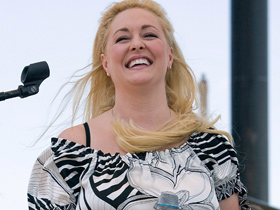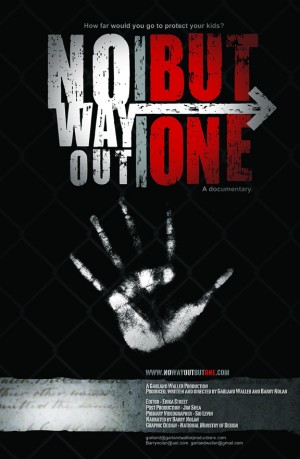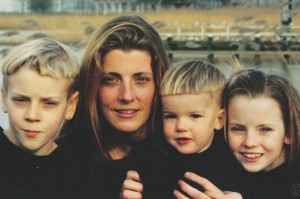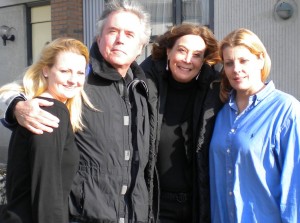Mission Statement
Mothers Day March in Washington DC, May 8, 2011
"Auld Lang Syne" Should old acquaintance be forgot, and never brought to mind ?
Mothers Are Vanishing – humanity is at a critical threshold, teetering on the balance of survival or destruction. We - alone or together can and will be the answer. as we bring in the new year. Know that this may be the beginning—or the end.
May your heart be full of love – your conscious clear. Let ‘truth, self respect and dignity’ be your guide and "Auld Lang Syne"
Happy New Year!
xoxo
Claudine Dombrowski (mother of Rikki Dombrowski)
A Battered Mother Survives
####
Below you will find the lyrics for this traditional favorite in the English Translation (minimalist). I included a few interesting facts concerning this wonderful old song. I hope knowing the words to "Auld Lang Syne" in advance of the festivities, will help you to enjoy your New Year celebration even more.
- "Auld Lang Syne" is a Scots poem written by Robert Burns in 1788 and set to the tune of a traditional folk song." It's often sung to celebrate the start of the New Year, generally at the stroke of midnight.
- "Guy Lombardo is often credited with popularizing the use of the song at New Year’s celebrations in America, through his annual broadcasts on radio and television, beginning in 1929. The song became his trademark."
"Same Auld Lang Syne"
As another year comes to a close, we are reminded of the many major events that have taken place in the world and in our lives; wars and fighting, new territories conquered, great heroes and heroines that we have lost, new friends we have made, babies that have born into our families- our children stolen by pedophiles and abusers, Friends and relatives that have passed on through this world and into their eternal destiny. (Betty Gail sales –Stumpf)
There have been good times and not so good times, but those are the building blocks that construct and build the multi-levels and form the layers of our lives. Memories created and forever etched in our minds, hearts thoughts and lives; this is the stuff that life is made up of, so we take the good and the bad and make the best of it, choosing to highlight the good and joyful times.
The new year is rapidly approaching and as such, we plan our traditional New year's Eve parties. Bringing in the new year with good food, music, prayer, hugging and kissing; grateful and thankful to be in good company during this special time as we usher in a fresh new year full of possibilities and potential.
Countdown to the new year begins at 10 seconds before midnight, then as the clock strikes 12:00, it's time to share your rendition of the classic traditional song, "Auld Lang Syne".
The only problem that can exist now is the possibility that you might not know or remember all the lyrics or words to the song, since it's not a tune that is sung on a regular basis throughout the year. The lyrics (words) to this traditional classic are as follows:
"Auld Lang Syne" English Translation (minimalist)
Should old acquaintance be forgot,
and never brought to mind ?
Should old acquaintance be forgot,
and old lang syne ?
CHORUS:
For auld lang syne, my dear,
for auld lang syne,
we'll take a cup of kindness yet,
for auld lang syne.
And surely you’ll buy your pint cup !
and surely I’ll buy mine !
And we'll take a cup o’ kindness yet,
for auld lang syne.
CHORUS
We two have run about the slopes,
and picked the daisies fine ;
But we’ve wandered many a weary foot,
since auld lang syne.
CHORUS
We two have paddled in the stream,
from morning sun till dine† ;
But seas between us broad have roared
since auld lang syne.
CHORUS
And there’s a hand my trusty friend !
And give us a hand o’ thine !
And we’ll take a right good-will draught,
for auld lang syne.
CHORUS
Repeat
Who Will Protest Against the DSM Harm? Integrity, Concern, and Action is needed for DSM Protest
Paula Caplan, Ph.D. on psych diagnosing
http://www.psychologytoday.com/blog/science-isnt-golden/201112/who-will-protest-against-the-dsm-harm
Science Isn't Golden
Matters of the mind and heart
by Paula J. Caplan, Ph.D.
Who Will Protest Against the DSM Harm?
Integrity, Concern, and Action is needed for DSM Protest
Published on December 19, 2011 by Paula J. Caplan, Ph.D. in Science Isn't Golden
Problems
The good news: More people than ever before are learning that psychiatric diagnosis is not grounded in good science and causes a vast array of harm to people who have turned for alleviation of their suffering to those who are called helping professionals. The bad news: The forces keeping the psychiatric diagnosis juggernaut rolling and misleading the public are more powerful than ever.
I have written about these concerns here before, as well as elsewhere (They Say You're Crazy: How the World's Most Powerful Psychiatrists Decide Who's Normal and Bias in Psychiatric Diagnosis, as well as at psychdiagnosis.net), so I will not repeat most of what I have already said. Today I focus on the danger of assuming that organized protest against the Diagnostic and Statistical Manual of Mental Disorders (DSM) is well in hand and likely to be effective in stopping the harm. There is no reason to believe that this is the case.
You may have heard about the petition started by several divisions of the American Psychological Association, who express concern about possible harm to children, adolescents, and the elderly and ask for an external group (the DSM is published by the American Psychiatric Association) to evaluate the proposals for the next edition, called DSM-5. This petition has garnered thousands of signatures and the support of additional American Psychological Association divisions. Although it is wonderful that these brave divisions have at last spoken out about the devastation caused to untold numbers of people over the many decades of the DSM'sexistence, it is stunning that they would specifically omit mention of harm to adults who are not elderly. When I wrote petition coordinator David Elkins to inquire about this, he did not respond to the question. (Note added December 19: Please see in Comments section after this article that Dr. Elkins has now responded there to the question I had emailed him about this awhile back. I am delighted to hear that his group is also concerned about adults who are not elderly, and I hope they will take pains to make clear in the future that they are concerned about everyone who has been hurt by psychiatric diagnosis. This does not change the other concerns in this essay, and in his comment here below, Dr. Elkins did not address those.) It is hard not to wonder whether this is due to the association of Allen Frances with this petition.
Former Psychiatric Manual Chief Demonizes Those Hurt By His System
Frances, the psychiatrist who headed the work on DSM-IV - on which I served as a member of two committees before resigning in horror at the way they ignored, distorted, and even lied about the scientific basis for their diagnoses - recently wrote in an article called "The user's revolt against DSM-5: Will it work?" in the November 10, 2011, Psychiatric Timesthat he was worried that the "harmful anti-psychiatry movement" would damage this petition campaign. He pointed out that, although "DSM-5 is such a mess," nevertheless, psychiatry "is essential and extremely helpful - DSM-5 is nor more than an unfortunate and temporary aberration." His intense need to defend and protect psychiatry in general is clear.
I simply could not believe my eyes when I read Frances' opening statement in that article. He wrote: "When it comes to DSM-5, experience has proven conclusively that the American Psychiatric Association (APA) will not attend to the science, evaluate the risks, or listen to reason. A user's revolt has become the last and only hope for derailing the worst of the DSM-5 suggestions." I thought of the many years during which he steadfastly ignored the questions that were raised about the woeful state of "science" in his edition of the DSM, his dismissive attitude when concerns were raised directly with him about the patients whose lives had been ruined because of psychiatric diagnosis, and his claim, when asked, "Is there at least some evidence that more people have been helped than harmed," that "Well, of course there's no way of knowing that." Hardly the response of someone who understands that science is useful in answering exactly such questions.
Frances' disdain for those adults (who include some proportion but by no means the majority who are elderly members) who joined the anti-psychiatry movement because they were so profoundly harmed by the traditional mental health system is revealing...and terrifying. Are the only good ex-patients those who stuff deep inside themselves the ways the system hurt them? And I have to wonder, does he not grasp the point that, even though he believes the anti-psychiatry movement is harmful, he might want to refrain from publicly tarring a movement that includes such sterling organizations as MindFreedom International, The Icarus Project, PsychRights , the National Empowerment Center, and the International Society for Ethics in Psychology and Psychiatry (which includes some survivors as well as some professionals)?
This would matter less if the APA petition had a prayer of leading to change. I fervently hope I am proven wrong, but here are two of the major reasons for doubt:
(1) In the mid-1980s, beginning at the Association for Women in Psychology conference, I coordinated the first petition campaign in which any DSM categories were challenged. This was in regard to then-forthcoming DSM-III-R, whose Task Force was headed by Robert Spitzer, who is now, like Frances, suddenly speaking out about the lack of science and the harm from psychiatric diagnosis. Did they suddenly discover this once they were no longer in command of the manual? Our 1980s campaign ultimately netted signatures and letters from individuals and organizations representing more than six million people (in contrast to the thousands so far signing the Elkins petition), but that did not stop theDSM authors from steamrolling ahead. And it certainly did not stop Allen Frances from including in his edition, DSM-IV, categories that he knew had led to harm. How do I know he knew? I told him in a telephone conversation, and I sent him documentation of harm. If another major lobby group, the American Psychological Association, which long ago raised serious concerns about the DSM but now refuses to challenge it as a body (hence the courage of those of its divisions that started this petition) and in fact profits from offering Continuing Education courses about the DSM that lack critical components, would get on board with any anti-DSM petition, that would carry considerable weight. Up to now, they have refused to do so. In a recent press release (December 2, 2011), they stated that any psychiatric classification system "must be based on the best available science and serve the public interest." The disingenuousness of that statement is striking, given that unless they have spent many decades under a rock, they know full well that the DSMis unscientific and causes harm. Furthermore, according to the press release, they share the belief of the petition's authors that "the purpose of any diagnostic classification system should be to improve treatment outcomes." Yes, it should be. But as I have learned through reading the research, diagnosis of mental disorders does not help (except to get insurance coverage, and I have a proposal for how to deal with that), does often cause harm, and does not correlate with outcome. We learn from the press release that the American Psychological Association has "called upon the DSM-5 Task Force to adhere to an open, transparent process based on the best available science and in the best interest of the public." They might as well shut themselves in a closet and whisper that request.
(2) So many powerful systems have a stake in maintaining the fundamentals of psychiatric diagnosis that it strains credibility to think that the DSM-5 heads would turn over the evaluation of their work to some outside group. Historically, under Spitzer and Frances, the DSM chiefs boasted about "consulting" with many hundreds of professionals (note: they included hardly any, if any, people who had been patients in their system) in constructing their manuals, but I know from my experience and the experiences of others that they compile an impressive list of all these consultants but freely reject any opinion that goes against their aims, no matter how grounded in science and/or humane concerns those conflicting opinions might be.
Actions
http://www.psychologytoday.com/blog/science-isnt-golden/201112/who-will-protest-against-the-dsm-harm
From Tragedy To Action: The National Release of "Jana’s Story". Jana Mackey Kansas University Student & NOW Lobbyist Who Was Brutally Murdered In An Act of Domestic Violence....
The video "Jana's Story" is now available. Please see the link below. http://www.JanasStory.org/
This powerful video is about the dramatic impact of domestic violence. Most importantly, however, this short film is about hope, inspiration, and encouragement for others to take action. Today, Jana's light shines brighter than ever. VIEW IT. SHARE IT. and LIVE IT by taking action and making a difference.
National Release of "Jana’s Story" Video Set For December 6th
On December 6, 2011, Jana's Campaign will release its long anticipated video "Jana’s Story". This powerful video brings to light the dramatic impact of domestic violence. The story of Jana’s life and death are illustrated in the hopes of encouraging others to take action. See the video at www.JanasStory.org. VIEW IT. Witness the powerful story of Jana’s life. SHARE IT. Help us tell Jana’s story and spread the word. LIVE IT. Take action and make a difference.
The timing of this video release has been scheduled to coincide with The 16 Days of Activism Against Gender Violence. This campaign begins on November 25, the International Day Against Violence Against Women, and ends on December 10, International Human Rights Day.
These dates symbolically link violence against women and human rights, and emphasize that such violence is a human rights violation. Since 1991, this annual campaign has mobilized more than 3,700 organizations in 164 countries to raise awareness about the multiple forms of violence women face. The 16 Days of Activism Against Gender Violence is hosted and sponsored by the Center for Women's Global Leadership at Rutgers University.
Jana’s Campaign would like to thank all those who have made this video production possible.
10,000 Angels - Justice For Mother and Child
Courtesy MamaLiberty 10,000 Angels
Mindy McCready sang about 10,000 angels in 1996 and now they sing for her. Protective mothers who also know all too well about family courts, DCF and abusers what Mindy has been through with custody of her son. This is a victory that will not go unnoticed with the large community of protective mothers. We applaud Judge Harrod for what we can only assume is reason and logic that a mother should be with their child, we couldn’t agree more.
All Smiles
By LUCHINA FISHER (@luchina) and YUNJI DE NIES Dec. 6, 2011
Country singer Mindy McCready left an Arkansas courthouse a “happy girl” Monday without divulging details about a juvenile court judge’s ruling on what will happen to her and her five-year-old son Zander.
“I can’t talk about it, but I can tell you all I’m a happy girl. I’m a happy girl right now,” she said to reporters gathered outside the Izard County courtroom of Judge Lee Harrod.
“I love Judge Harrod, I’ll tell you that. I love that man. He’s a good man,” she said before being driven away from the courthouse.
Later Monday evening, McCready sent a text message to HLN’s Jane Valez Mitchell that the host read on air.
“WE WON!!! ZAN STAYS,” McCready wrote. “Court details sealed but we love Judge Lee W Harrod.”
Details on when the singer may be able to take Zander back home to Nashville, and whether McCready will get permanent custody of her son remain unclear.
“The next step would be for the judge to decide,” Amy Webb, director of communications for the Arkansas Department of Human Services, told ABC News.
Florida Department of Children and Families officials had been expected to request in the hearing that Zander be sent back to Cape Coral, Fla., where McCready’s mother, Gayle Inge, is his legal guardian.
“We will not discuss details of this case per the judge’s order. Of course we continue to work with all involved parties to ensure this child’s safety and well-being,” a Florida DCF spokeswoman told ABCNews.com.
McCready’s rep offered no information either. “All proceedings and documentation surrounding the hearing are sealed,” Kat Atwood said in a statement to ABCNews.com. “No further information is available at this time.”
activism, child abuse, Child Custody Issues, Children's Rights,domestic violence, Family Courts, Government Corruption
Tags: abused children, CPS, family court, Florida DCF, mat
RUN MOMMY RUN!!! NO WAY OUT BUT ONE!
New Documentary By BU Professor Tackles Flawed Family Court System
By Lauren Michael | Dec 5th, 2011
Poster for 'No Way Out But One.' | Photo courtesy of Garland Waller and Barry Nolan
In 1992, Holly Collins went to a Minnesota family court intending to secure full custody of her two children, Zackary and Jennifer. She had believed that if she told the truth–that her ex-husband had repeatedly abused her and their children–everything would be okay. But her evidence of abuse, including several medical records and the children’s statements that they always feared visiting their dad, were repeatedly rejected by the court. Her husband claimed she was lying and trying to alienate their children from him. Then, like thousands of battered women each year, Holly lost full custody of her children to their abusive father.
After two years with limited supervised visitation, in which the children weren’t permitted to discuss the ongoing abuse, Holly decided to do something. One day, she asked her kids to meet her at a video store near their dad’s house. They got into a car and started driving. They tried going to Canada, Mexico and Guatemala. Knowing the FBI was searching for them because Holly had in fact kidnapped her kids, she decided to try escaping to Australia or New Zealand. They managed to sneak through airport security without passports and got onto a flight to Amsterdam. There, they were detained and sent to a refugee camp. Years later upon finding a lawyer willing to take her case, Holly became the first U.S. citizen to be granted asylum by the Netherlands on the grounds of domestic violence.
For COM Professor Garland Waller, Holly Collins’ story was the perfect outlet for her to make a documentary on the shortcomings of the American family court system. “My first documentary was about three women who all lost custody of their kids to men who had battered them and sexually abused them,” she said to me when I interviewed her last Thursday. The documentary was never aired for the public, however, because people considered it way too controversial.
“I thought, I know this is an issue that is going on in the family courts, every single day,” Professor Waller explicated. “How can we do a story on this issue of domestic violence and child abuse that people will want to see; that will have a story that has a beginning, middle, and end; that has a hero; and that doesn’t make them feel suicidal at the end?” That’s why she decided to center her film around Holly’s story. ”Holly is one of the few women who has been able to save her children from years of being abused,” she affirmed.
On December 2 at 7pm in COM 101, Professor Waller and her production team screened the filmNo Way Out But One for a packed lecture hall of students and faculty. The hour-and-a-half long documentary, which was followed by a Q&A session, follows Holly’s story and also outlines the grievous problems 0f the American family court system. Made for under $40,000, the not-for-profit film was a way for Professor Waller and her husband Barry Nolan (who also produced and narrated the film) to make a difference.
“This is what I do to give back,” she explained. “Some people work for charity, some people give to the United Way, but this is what I do.”
As the documentary cites, each year 58,000 children are placed in contact with an abuse parent after divorce, and batterers win custody in 70% of family court cases where abuse is involved.
Holly Collins with her children outside the refugee camp in the Netherlands. | Photo courtesy of Garland Waller and Barry Nolan
As lawyer and co-excecutive producer Toby Kleinman explained in the Q&A, the family court system and the criminal court system operate under very different motives. Whereas criminal courts are designed to find the guilty party beyond a reasonable doubt, family courts want to be fair to each party involved. “They assume everyone is lying,” Kleinman said. She also explained that when batterers come in calmly and wearing three-piece suits, and then the subjects of their abuse come in emotional and distraught, it’s easy for the judge to peg the father as “normal” and the mother as “unbalanced.”
Professor Waller also cited the lingering gender bias in the family courts. “Courts do not have to consider domestic violence in their rulings, ” she said. “Now that is anti-woman, because it’s usually the women who get beaten up.” Money, she says, is also involved. “The men who want custody are the ones who can afford to have the kids, and you have to be able to pay the court costs,” she explained. “This is something that doesn’t happen in poor families…it costs hundreds of thousands of dollars to pay all these people.” If the father is paying for the court evaluator, she says, often they’ll skew the evidence in his favor.
But even in ugly divorces, she says, usually the parents still want to do what’s best for their children. “When there are cases that involve domestic violence and child abuse, that is not the case,” she explained. “Women often get custody when there’s not domestic violence. But oddly, a batterer is more likely to go after custody than a non-batterer. So its a very complicated issue.”
Since the release of No Way Out But One, Professor Waller and her husband deal with angry father’s rights groups every day. These groups, like Fathers and Families, make an impassioned–if not entirely factual–argument for why they believe the Holly Collins case is a hoax. “After a nice review in a Boston Magazine blog, many pro-father’s rights men were highly critical,” she explained, but “none of them had seen the film and none of them had access to all the thousands of pages of legal documents and medical records and correspondence from experts and FBI documents that we had.” Many of these documents are shown and quoted in the film.
In their writings against Holly Collins, father’s rights groups cite Parental Alienation Syndrome, which means that a mother is trying to alienate her children from their father. Though it is not accepted as a legitimate diagnosis by the American Medical Association or the American Psychological Association (the psychologist who first wrote about PAS had conducted no actual studies), in family court it is often used to legitimize giving custody to an abusive parent.
L to R: Jennifer Collins, Barry Nolan, Professer Waller, and Holly Collins. | Photo courtesy of Jessie Beers Altman
As Nolan puts it, “these are people who do not and will not respond to evidence, or facts, or medical records, or court transcripts, or expert testimony if it does not fit their preconceived notions.” The groups say that Holly fabricated the evidence of her husband’s abuse, but in reality false allegations of abuse are very rare.
“Holly may not be perfect, but she was clearly a battered woman who only wanted to protect her children from abuse,” Professor Waller affirmed.
Still, this is an issue that has mainly been ignored by the mainstream media. “The mainstream media is terrified of getting sued, and this is a subject where everybody sues everyone all the time,” she explained. “It’s all he said/she said…so the mainstream media says, this is a mess and we’re not going to get into it. Just as the mainstream media did not cover pedophile priests abusing children, just as for years they did not cover the things that were going on at Penn State, it is the same thing only worse by thousands in terms of the children who are being abused.”
Many years after their mother kidnapped them, the Collins kids, now adults, are healthy and grateful for everything their mother has done for them. Jennifer Collins, Holly’s oldest daughter, is the executive director of Courageous Kids, an organization for young adults who suffered from court injustice as children to speak out and share their stories.
“I guess for me, the most important thing is that I would like people to realize that this is a national issue that is not going away until people begin to understand that in a family court, if you beat your wife and abuse your child, and go after custody, most of the time you will get it,” Professor Waller concluded. “I want to live in an America that protects the children.”
For more information about the film, go to http://www.nowayoutbutone.com/index.html.
CA: Domestic Violence Advocates Sign on to Amicus Brief Questioning Validity of "Parental Alienation" Defense
Domestic Violence Advocates Sign on to Amicus Brief Questioning Validity of "Parental Alienation" Defense
Published on Nov 30, 2011 - 12:20:36 PM
By: California Partnership to End Domestic Violence
SACRAMENTO, Nov. 30, 2011 - The California Partnership to End Domestic Violence (the Partnership), the statewide domestic violence coalition, has signed on to an amicus brief filed last week concerning the case McRoberts v. Superior Court of Los Angeles County. The brief concerns a case in which custody of three children was transferred from their mother, Segalit McRoberts, to their father, despite evidence of his sexual abuse of two of the children.
During the thirty days in which Mr. McRoberts had sole custody, the children were not allowed to see their mother. The children were turned over to their father based on a defense of "Parental Alienation Syndrome" (PAS). PAS is a widely discredited phenomenon commonly invoked in family court proceedings, in which a parent who has been accused of abusing either the children or their spouse, claims that the abuse victim is intentionally "alienating" the children from him or her. The American Psychological Association does not include PAS in its Diagnostic and Statistical Manual of Mental Disorders, because there is no scientific evidence of its existence.
PAS is often used by abuse perpetrators in court as a way of exerting control over their victims, and manipulating divorce and custody proceedings. The Partnership's Executive Director Tara Shabazz said that her organization joined the amicus brief because of the history of bogus PAS defenses being used to undermine domestic violence victims in court.
"Parental Alienation Syndrome does not exist," she said. "It's a travesty to see children taken from their mother and turned over to an abusive parent, as happened in the McRoberts case. It's time for the family court system to recognize that PAS testimony can't withstand scientific or legal scrutiny."
To read the full amicus brief, click here.



















